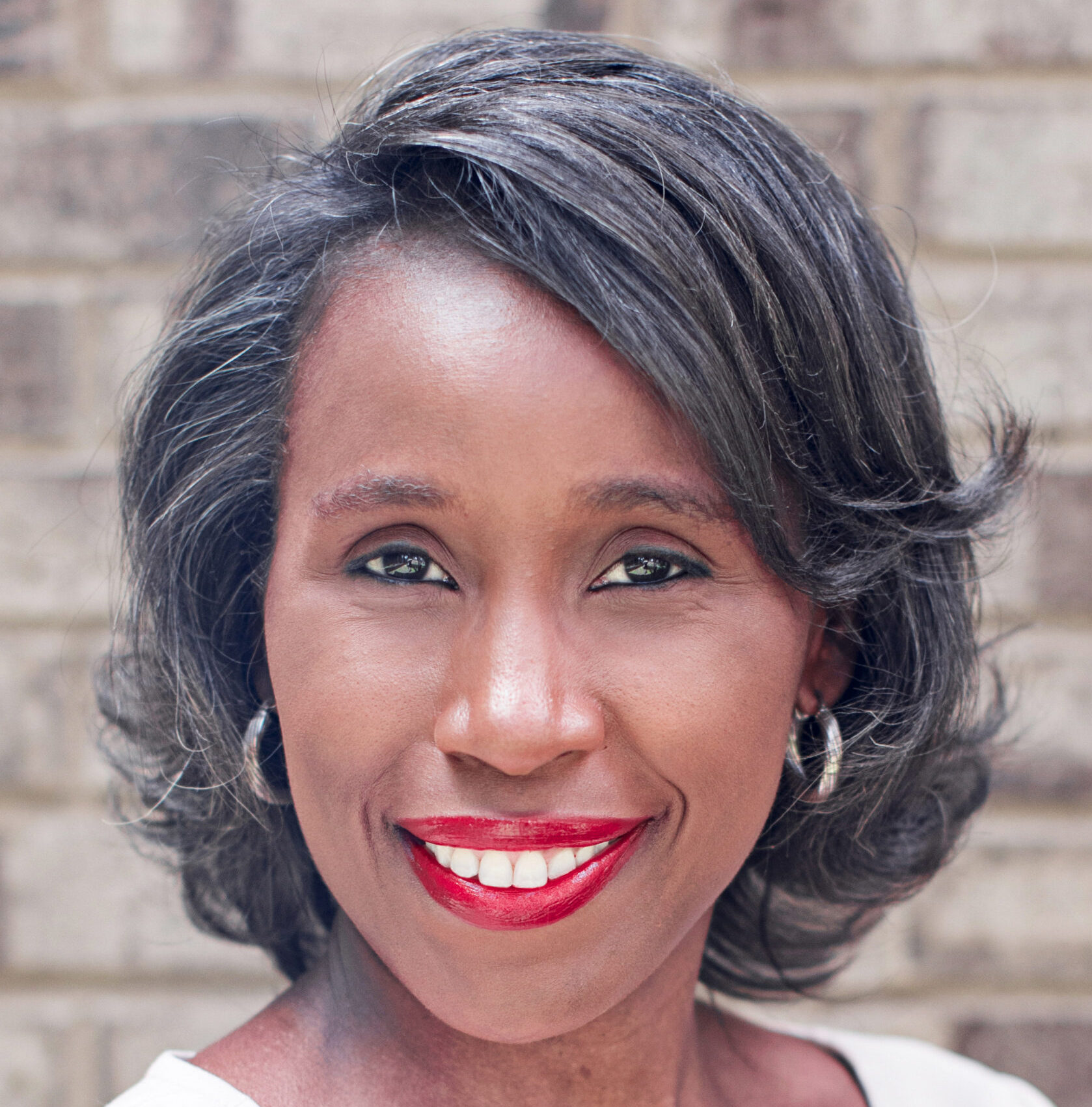You can be as prepared as possible for a new digital age of work, but more often than not, the biggest hurdle to digital success is your boss.
The boss is ill-equipped, doesn’t understand digital, or has a lot of bad habits that prevent you getting to a higher level digital workplace.
Dana Brownlee is the author of Managing Up and a senior writer for Forbes.
Managing up in a digital workplace
Dana says the digital world has changed many things about how teams connect and collaborate. If you want to manage up and help your boss, it starts with matching up communication preferences. There are so many options for communication in a digital age. Some people prefer instant messaging, while others like video or phone calls. Be willing to adapt to suit the needs of your team.
Managing up often means being more visible. It’s easy to slip into the shadows in a digital workplace. You need to be present and make sure your boss knows what you are working on and how that is leading towards the team’s goal.
Communication becomes even more important when talking about your intentions. Because of the lack of visibility, your boss might see your actions as challenging them or trying to steal some authority. Dana says to be clear about what you are trying to do and keep communication open.
Building an anti-racist workplace
A digital workplace can often create a communication caste system, says Dana. There are those who have access to digital opportunities and those who don’t. Leaders need to be sensitive towards these dynamics and give more access to all.
The challenges of confronting racism are hard in any team. Dana talked to us about her experiences in code switching for decades in the corporate world, and why we need to think about the relative strength and influence of our relationship network compared to others.
In digital spaces, people often get keyboard courage and will say things that they wouldn’t in person. Sensitive issues often bring out the worst in people, yet shutting down all discussions that make people uncomfortable isn’t a good solution. These are all challenges the digital leader must face to build a true anti-racist team.
Links
Dana on LinkedIn
Dana on Forbes
Welcome back to The Digital Workplace podcast. Today our guest is Dana Brownlee. She is the President of Professionalism Matters and the author of ‘Managing Up’. Hey Dana, how are you doing today?
Doing great. How are you?
I’m doing excellent. Very excited to talk to you on this lovely day that we’re having. First, before we get too far into our discussion, we’re going to be talking a lot about ‘Managing Up’ and all the different ramifications of that. But I want to start off with a test to make sure you are a certified human. Your question today is, what is a hobby that you would like to start? Or get back into, let’s say?
I think maybe reading real books. I’m on Audible all the time. I get through one or two a week, but I cannot remember the last time I physically picked up a book.
Yeah, that’s a good one.
Yeah, so that sounds very romantic to me. I might want to get back into that.
I love it. I tend to have multiple things going. I have my situation for audio books, and then I have my situation for e-books, and then for real books. It’s all scattered.
Right. Right. At least you are diversified. I need to bring that diversification in my reading.
Well, introduce yourself a little bit to our audience here. You write a lot. You do a lot of training. You have a book out. But tell us a little bit about yourself?
Yes, well, I just turned 50. So, my intro seems like it’s getting longer and longer. I’m officially old, I think at this point. But I’ve had an interesting circuitous career. I started as a Management Consultant after some years in corporate and I started a training company about 20 years ago. And so mostly, I provide training and speaking on a range of topics like leadership skills, project management. I’m also a Senior Contributor with Forbes careers. So, I’m writing on a range of career topics. And one of my recent passions is around workplace anti-racism. So, I have a few courses that are out. Well, one is out on LinkedIn learning about collaboration, and then I have two more coming out in the next few days, actually in weeks, about workplace anti-racism.
Wow. So, there’s so many ways we’re going to take this discussion. I just want to start off saying, as you mentioned, I’ve listened to your book ‘Managing Up’ and you’re the real deal. You have a lot of great insights and all the examples that you put in your book, they’re not fluffy examples you just came up with. Those came from real situations. I loved it.
Right, right. I try my best because when I get in front of groups, I’m like, ‘Look, this is an hour of your life you’ll never get back.’ So, the last thing I want is you to go back and feel like, ‘Oh, I was all revved up, but I still don’t know how to handle this same problem.’ So, I try to be as practical as I can.
Yep. Well, let’s start with ‘Managing Up’ and then we’ll move away forward from there. So, tell us why you wrote ‘Managing Up’ and what you’re hoping people do with it?
It’s an interesting story, at least to me, in terms of why I wrote it. I mentioned before that I tend to speak on a range of topics. So, one of the things that I started noticing was no matter what the topic was, I might be talking about communication skills to one group or project management skills or accountability issues, invariably one of the first questions I would always get when I got to Q&A was, ‘But what if the problem is my boss?’ It’s like ‘That stuff all sounds great, but how do you handle it when it’s a senior leader or your customer, your client, or your boss?’ It’s like layering hierarchy onto it because it really does change things. And so, then I was like, ‘I think there’s something here.’ And that really was my impetus. I actually wrote a white paper for PMI, in 2010, called ‘The Project Manager’s Guide to Dealing with The Difficult Sponsor or The Difficult Client’. And so, that was probably the first time I officially started writing on the topic. And then I said I really need to pull together some real content based on my project management days, because as a project manager you’ve got to satisfy everybody. You’ve got all these different stakeholders, and everybody wants something different. So, that really was the impetus for me.
And it’s fantastic. There are so many great insights in the book that it comes through. So, I would recommend everyone check it out. But I want to specifically ask you, you wrote that book a couple of years ago. What’s changed now that the whole world is digital? Now all of our interactions with bosses, if they’re good or bad or somewhere in between, most of those interactions are digital. What are the rules now? And how have they changed for people who are in a digital space trying to manage up?
Yeah, if anything, I think ‘Managing Up’ has just gotten more important. Because ‘Managing Up’ is all about making your boss’s job easier, taking things off their plate. And so now with the pandemic, and the economy, and just all these things, it has become harder. And let’s face it, a lot of our bosses maybe were struggling with technology a little bit, and so that became a challenge and an issue. And so, they really did need people to step up and not need so much hand holding, but beyond that really, really value that managing up.
And then the other element I think is, with all of us working remotely, you have so much less visibility. You are not in front of those decision makers. You’re not able to network as much or have those hallway chats or that elevator ride where you bump into somebody that you know is great, that you got a chance to meet them again or sustain that relationship. And so now, ‘Managing Up’ I think just becomes more important because it becomes a tool for you to distinguish yourself and for you to make yourself unforgettable and indispensable. And so, I think then, particularly in our economy, it’s become more important.
Yeah, I definitely agree with you. I think it is more of a challenge, but it’s more important than ever before. We’re often talking to managers about how to keep their teams engaged, keep things going on. But even for people on those teams and people who are leading projects, working with sponsors, working with bosses, to keep them informed and educated and just to communicate, is so much more important than it ever was. Because if you don’t see something for a week, you don’t see an update on it, it’s hard to know what’s going on. And then you’re just left out in the dark, and no one knows what’s going on in that way. So, I think this is a new skill set that people need to bring about, being in front of people probably more often than you’re comfortable with, maybe even like bragging on yourself, we might have said in the old days, but now it’s just telling people what’s going on and keeping them informed.
Yeah, right. And again, it’s about making your boss’s job easier. Communicating in a way that’s more convenient for them. So, you might love video calls, but maybe they really prefer if you just call them on their phone, you know, just doing that additional legwork to figure out what makes life easiest for them.
Yep. So again, everyone checkout the book. There are so many artful responses that you gave in terms of how to handle the different types of bosses. I love the different types of bosses. They’re so real, and everyone can resonate with those ideas. Let’s shift a little bit and talk about, particularly some of the considerations that black and brown employees will have as they manage up, because we don’t assume that everyone’s going to have the same experience in this. So, what have you found in your work that makes it more difficult for people from black and brown communities?
Yeah. And I think much of it is the same. Obviously, we’re all people. We’re all human beings. But the reality is for black and brown people, just as with a lot of other things, unfortunately, things can be more difficult. So, I think that if you think about visibility, it is an issue. A lot of us are going into this hybrid team environment where some people are going to be in the office, some people are going to be home, and it almost creates this information haves and have nots. And so, it almost creates this communication hierarchy or communication caste system, if you will. So, you don’t want to be at the bottom of the caste system.
And so, I think that our environment is creating another level of complexity where it’s easier for those people who are remote, those people who aren’t seen, to fall into the background, and for us to forget about them and forget about their contributions. I think that if you have any sort of othering effect like if you’re black and brown or for whatever reason not part of the dominant culture, then I think that you’re more likely to become even more invisible. And so that’s why again, for those particular communities, it’s so important to stay front of mind. It is so important.
Like maybe pick a day and coach people, say maybe every other Friday. Make sure that you have a networking block from 12 to 1:30. And that is your time that you have written down in your calendar to be sure that you get in front of certain people, or that you build some new relationships. Because you can’t rest on your laurels and just assume that it’s going to work out by osmosis. And so, I think that’s one of the ways, in particular for those black and brown communities, that is something that they need to be really cognizant of.
The other thing I’ll say just quickly is, one of the mistakes that people make with managing ups is when you’re thinking about taking things off your boss’s plate or volunteering to take lead on certain things, for example, really take the cues in terms of how that’s received. Because I’d like to say managing up is not taking over. A great way to blow up your career is to come across as if you’re trying to take over, you’re trying to do your boss’s job, you’re trying to tell your boss what to do. No, no, no. We’re not necessarily saying that. But I think that where black and brown employees sometimes have a disadvantage is, sometimes we don’t have as many of those relationships, or we don’t have the stronger relationship network. And so, it can become easier for people to misinterpret what our intention was or misinterpret tone, etcetera. So again, those are just some of the other elements that I think can come into play unfortunately.
Yeah, absolutely. We had a guest on before, Kelli Jones, who made me aware of what you said at the start, that these are people issues. This is not just a race issue in terms of managing. But at the same time, I get up and start my day and my main role is, okay, I got this big project I need to get through. I need something else. Whereas somebody from a disadvantaged or a community that is black and brown that has been historically oppressed, also has to get over this. However, first they have to get over the hump of, do I even belong here? Does society want me here? And then they have to also do the project on top of that.
Yeah, natural biases. And I just think, if you look at the numbers, we all know how important relationships are, in terms of careers. How relationships are everything, and you tend to build and sustain relationships with people who look like you and people who have more in common with you. And so, to the extent that white men historically have been at the top of the food chain and tend to wield a lot of power. I mean, just being completely honest, keep it at 100, when I pick up my cell phone and start scrolling through my personal friends, there aren’t a lot of white men in there, just aren’t. And that’s not a bad thing or a good thing. It just is what it is. And so, a lot of times for us, we’re ending up having to make a lot of effort. Because when we look at our social circles, when we look at where we’re hanging out on the weekends, a lot of times we just don’t tend to have as many of those close natural organic relationships with people who are in those positions of power.
Well, tell me a little bit about code switching then. Because when people get into those situations, and we’ll just start in the office, there’s a certain, we’ll say, etiquette or a culture, that exists in the office that is dominated by white males. And so, it’s like, ‘Hey, if you want to be here, you got to play by our rules a little bit’, in terms of how we interact together, how we talk to each other, the types of things that are there. And then as that translates to, ‘We’re almost developing a new digital etiquette that’s been expected with lots of other things that’s going to be dominated by other groups that’s there.’ Tell me about that code switching word. What does it take for somebody who’s not used to those worlds, to get in there, learn the systems? Does it feel inauthentic? All that. Tell me what you think.
Yeah. It’s so funny to me now because when I reflect back on my career, code switching was something I feel virtually everyone I knew, who was a person of color or black person in particular, did. We didn’t have a term for it. But there was just kind of an understanding that you’re assimilating into an environment that does not for the most part look like you and may not necessarily reflect your culture, might not even particularly reflect your values. And so, you’re typically, at least back in the day for me when I was in corporate, decades ago, there weren’t that many black women, not to mention there weren’t that many black women in positions of authority. So, when you step in and they’re talking about they went to Helen over the weekend, and I don’t know what they’re talking about. You just automatically adjust.
And I’m just defining for you what code switching is. I think it’s up to the individual in terms of how much they want to partake in that. I think I did it to a degree. I think everyone does it which is great, in that you want to be accepted and you feel a sense of pressure. You feel a sense of pressure to adjust your tone of speech, your language, your dress, just so many things about yourself, to not stand out and to be accepted within that environment. I think that we’re in an amazing time today where there’s pushback on that. People are saying, ‘Well, why should we have to assimilate?’ Real diversity means celebrating who you are and that you are different and your uniqueness. So, I think that it’s wonderful and it’s great that we’re having this conversation and that people are really trying to show up as their authentic selves, because ultimately, I think that’s where we all win.
Do you think a digital world makes that harder or easier?
Good question. I think that in a lot of ways being digital, again, one of the big barriers that I see is that it’s so much easier for people to fall into the background. And you just don’t know about them. They’re really not a part of the team. I feel like when we’re operating digitally, you have to pull people in. You have to. And then there’s this paradox. You don’t want to force people to turn their cameras on all the time because that gets exhausting. But at the same time when you’re not seeing people, there’s a huge disconnect. So, I don’t know. I think in people’s personal lives, certainly people are much more themselves and there’s less code switching going on because there’s that keyboard courage, and it’s maybe in their personal lives. But I do think that during those work hours and in work situations, I still do think that that certainly is an issue and I think that being remote can make it more complicated.
So, here’s my thing. You tell me what you think about it. I feel for people who are digital natives, for people that come from their experience using digital tools, they’re very comfortable with that. I feel the transition to learning the new culture or learning these types of things, there should be less code switching for people like that because it should even the playing field a little bit more and make it easier for you. As you’re interacting with people, it’s not obvious that you’re different by the color of your skin even. Obviously, the video is there. But for the most part of the day, it’s not even in somebody’s awareness that it’s there. But I feel it’s a big jump that’s still there from, like you said, the digital haves and have nots. I think for people who were behind the times technologically or aren’t as used to using those tools, I think that’s going to be an even bigger gap to jump now, which of course, disproportionately affects black and brown people as well.
Yeah, absolutely. I think there’s a huge difference between being forced into the digital world and choosing the digital world. And being forced in it just creates a whole another level of anxiety. And it creates, just as you’ve alluded to, it creates an opportunity for some people to be exposed. I mean, let’s be honest. For some people, the pandemic was their first Zoom call. And so, we all didn’t necessarily start at the same place. And I’m not in any way suggesting that black people were behind white people necessarily. I’m just talking in general now, in terms of people, that there sometimes were technological differences and that can be unsettling. And it actually brings us back to the first topic about managing up.
Actually, some of what I heard about quite a lot, was a lot of people were saying to me, ‘My managers freaking out, my managers freaking out.’ They’re not used to this technology. They’re not used to working from home as much.’ And so that’s why I said, ‘Well, it creates a huge opportunity.’ Because now you can show your value. Now you really can step in and help them. Maybe you lead the Zoom calls. Maybe you coordinate it. You lead it. It’s a win-win. It’s an opportunity for you to demonstrate more leadership, probably build a closer relationship with your boss, and at the same time make a truly meaningful contribution to your team. So yeah, I couldn’t agree with you more.
Great. Thanks. That makes me feel good. Let’s move to your passion and what should be on all of our minds, about anti-racism in the workplace. And specifically, you brought the term ‘keyboard courage’, which you’ve heard more often than not lately. And especially, we’re dealing with digital places, where we’re coming right off the heels of this announcement from Basecamp that says, ‘Okay, no more political discussions in the office’. Because they felt, ‘Hey, it got out of hands, people took it too far,’ types of things. That is a tough issue to deal with and to figure out what’s the right call here when it comes to, ‘We want to be an organization that is anti-racist. We don’t want to stick with the status quo and what everything has been going on. But we also know that maybe the digital workplace does encourage more keyboard courage on both sides of issues that are out there.’ What’s your advice on how to handle those types of things?
Yeah, the Basecamp email was really surprising and interesting. I can’t speak specifically to their situation because I don’t know exactly what happened there. I think you could take any situation and have extreme examples. So, I don’t know. Maybe there were some extreme things going on there. But I can say more generally. I think that certainly the pendulum has swung towards companies having more social responsibility, companies supporting employees much more so from a social justice perspective and companies encouraging people to truly bring their authentic self to work. I’m not saying that they’re not but I definitely think that that’s where the pendulum has swung. And I think that’s an amazing and wonderful thing.
And I think that the companies ultimately that will be most valued by staff and employees are those companies that really refuse to stick their head in the sand and think that it’s completely binary or two different things like, Black people can be getting killed left and right by police, but we’re just supposed to show up and be happy and cheerful and pretend like nothing is going on. So, I think that if nothing else, the pandemic, as well as the murder of George Floyd and Amy Cooper and just all these other incidents that happened that were racially motivated, have shown us that there really is not this hard bifurcation between who we are at work, and then our personal lives, that there really is a good bit of overlap. And we need to encourage environments where we can come to work and be authentic.
If a company says no political discussions at the office, can they still be anti-racist? Or is having those discussions part of the process?
Yeah. Well, I’ll answer it a couple different ways. I mean, I don’t really know exactly what political discussions are. To me when I think about it, I think that’s hard to get your head around and that’s pretty subjective. It almost feels to me like people are saying ‘No discussions about things I don’t want to talk about.’ That’s what it almost feels like to me. I don’t think anybody would have, you know, there are tons of policy issues or politicians from MLK, well not MLK. JFK certainly would not say, not to talk about that. So, but anyway. I don’t know. I almost think that’s a bit of a red herring.
When I think about anti-racism, to me, that’s not the barrier. I think the barrier is, keeping it again 100, it has to be more than a hashtag. It has to be more than jumping on the PR bandwagon. All of these companies that are claiming anti-racism, they could have done this five years ago, two years ago. ‘Black Lives Matter’ didn’t just start. So, they wouldn’t touch it with a 10-foot pole, just like Colin Kaepernick, nobody was supporting this. Nobody was putting ‘#Black Lives Matter’ on LinkedIn three years ago, five years ago, because they considered it extreme, and they considered it something that they didn’t really want to deal with.
But then the public relations winds changed. And now everyone’s jumped on board. Now where true anti-racism comes in is, it’s not just about the hashtag or the likes on social media, it’s really about rolling up your sleeves, doing the work and figuring out where and how is racism impacting your environment, and what can you do to dismantle that. And I think the problem in terms of anti-racism is that they don’t want to do the work. It’s easy to make a donation or it’s easy to put out a statement. It’s much harder to roll up our sleeves, look at ourselves in an authentic way, and commit to doing some real work. So, I just don’t think that the true desire is there. And so that’s why we have the term ‘performative anti-racism’.
I think that too often the actions are performative and they’re self-serving. Because let’s keep in mind, going along with the PR winds being on the right side of this, even making a donation, there’s tons of goodwill to be had from that, there’s tons of positive press to be gotten from that. So, it doesn’t take a rocket scientist to figure out once something egregious happens and it’s considered a good PR move to say, ‘Yes, we support ‘Black Lives Matter’’, or ‘Yes, we’re anti-racist’, that your communications or PR team goes into overdrive and spits out a statement and comes up with a hashtag or whatever. It doesn’t take a rocket science to figure out that it’s a smart business move. But again, anti-racism is about long-term action.
I like your phrase. I mean, you got to get in there and do the work. But again, I feel like a lot of the work we need to do is on ourselves. We like to think that the work is, okay, I need to write the check. I need to attend the rally. I need to go off and do something, volunteer at some place. And then I’ve done my thing.
Yeah, and all of that is great. But that just needs to be the beginning, not the end. The problem is when it’s a one and done.
Yeah, absolutely. Dana, this has been really great. These are some of my favorite topics to talk about. We’ve covered so many great things, talking about ‘Managing Up’, talking about collaboration, about how we connect with each other in a digital place, about how that impacts who we are, bringing our full selves to work, so many great topics. If people want to learn more about you and all the great stuff you write about and your new LinkedIn programs coming up, where should they check out?
Please follow me on LinkedIn. I’m Dana Brownlee. And also follow me on Forbes. Go to my Forbes page. That’s where I truly engage, and I try to put out good quality content.
You know, you succeed in that. It’s really good stuff and I really benefit from it, just from learning about you and learning more about it. So, thank you for what you’re putting out into the world. We look forward to learning more from you in the future.
All right. Thank you, guys. Thanks for having me.
A dynamic, energetic, results-oriented corporate trainer and speaker, Dana Brownlee provides thought leadership in the areas of antiracism, leadership, and individual and organizational effectiveness.
After years of working as a business strategy consultant with top IT firms, in 2003 Dana Brownlee founded Professionalism Matters an Atlanta based speaking and corporate training company. An energetic and innovative speaker and trainer, Dana has thrilled audiences with speaking events around the U.S. and globally. Her presentations are specifically designed to provide best practices and techniques that participants can immediately apply in the workplace. A Senior Contributor for Forbes Careers, her business expertise has been featured by numerous media outlets including CNN, The Wall Street Journal, HuffPost, The Economist, Atlanta Journal-Constitution, Redbook, Working Mother, and others. Her first book “The Unwritten Rules of Managing Up: Project Management Techniques from the Trenches” was published by Berrett-Koehler in February 2019. She is the author of the LinkedIn Learning course “Essentials of Team Collaboration”. A nationally recognized speaker, Dana speaks to groups large and small on a variety of topics including encouraging antiracist workplaces, tips for rescuing your meetings, dealing with the difficult boss, secrets of the “Thoroughbred Leader”, and discovering the keys to true work-life balance. She holds a BS, BIE, MBA, and PMP.












